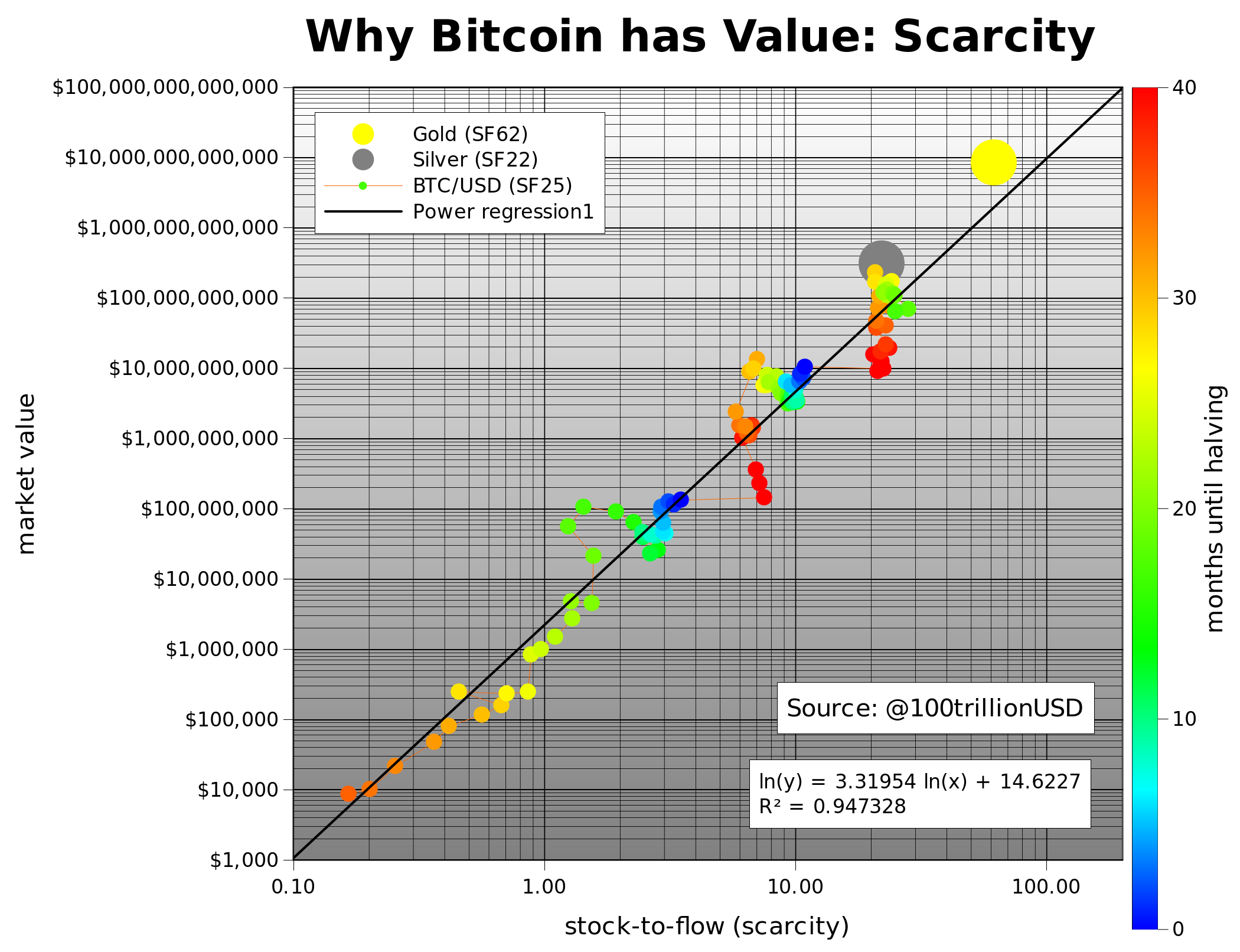Twitter user PlanB, who is known for his Bitcoin statistical model based on the stock-to-flow ratio, said that we’re now entering a new phase, citing his fractal dimension indicator. The chances are that we’ll see a strong bullish rally in 6 to 12 months, which coincides with the next halving.
Bitcoin and Stock-to-Flow
Recently, we reported how German bank BayernLB used PlanB’s model to conclude that there was a correlation between Bitcoin’s price and its stock-to-flow ratio.
The stock-to-flow (SF) ratio is calculated by dividing the Bitcoin’s current supply by the number of coins produced per a given period. The indicator shows the scarcity or abundance of an asset. Analysts use it for commodities like gold. The latter is actually the commodity with the highest SF ratio, suggesting that it is scarce and hard to produce.
As you might know, it’s getting more and more difficult to produce new Bitcoin because of increasing competition among miners. The phenomenon impacts the SF figure, which, according to PlanB, is the main driving force that pushes the Bitcoin price up.
PlanB focuses on the SF ratio to explain why Bitcoin prices went from pennies to the current $10k-ish figures.

Understanding Fractals
Another interesting finding is that Bitcoin displays a power-law relationship and acts as a fractal.
In mathematics, a fractal represents a never-ending pattern that repeats itself infinitely. While fractals are infinitely complex in practice, they display self-similar patterns across different scales.

In nature, we can notice fractal-like geometries in trees, flowers, river deltas, and even in species of broccoli. The mathematical concept was described in detail by Benoit Mandelbrot, who created the Mandelbrot set – the most famous fractal.
Generally, fractal systems show power-law behavior at different scales. The power-law refers to the functional relationship between two quantities, in which a relative change in one quantity causes a proportional relative change in the other quantity. What’s essential, the initial size of the quantities doesn’t matter. In other words, Bitcoin behaved at $10 similarly to how it behaves at $10,000.
According to PlanB’s recent tweet, the Bitcoin fractal dimension shows that we are entering a new phase. Thus, we might see a bullish rally in up to 12 months. That rally might be the switch to another scale, meaning that we’ll see Bitcoin fluctuating at around $100,000 after 2020.
#bitcoin fractal dimension (parameter b in a power law function y=a*x^b) indicates we are entering a new phase: orange/red. Although it doesn't feel very orange/bullish at the moment, I am very exited about next 6-12 months
pic.twitter.com/RzfScTPnpq
— Plan₿ (@100trillionUSD) October 3, 2019
Do you think Bitcoin will trade at $100,000 in the next few years? Share your expectations below!
Images via Shutterstock, Twitter:@100trillionUSD, PlanB







